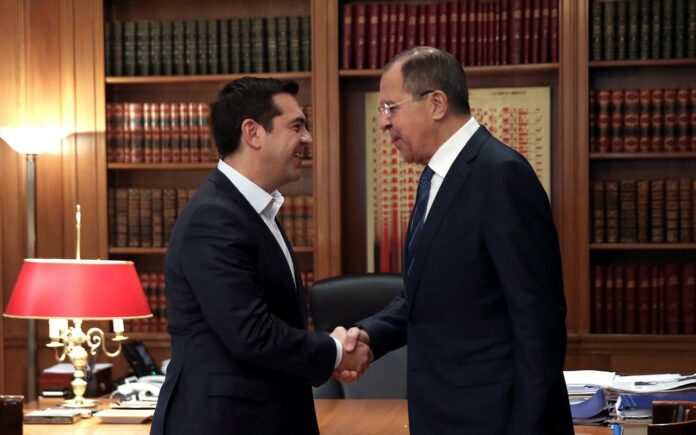Foreign Minister Sergey Lavrov completed the “grand tour” of Athens on Wednesday, meeting with Greek leadership and touching on a wide variety of issues affecting both countries and regional problems, including the Syria quagmire.
Lavrov met separately with Greek Prime Minister Alexis Tsipras, his counterpart Nikos Kotzias, main opposition leader Kyriakos Mitsotakis and Greek President Prokopris Pavlopoulos.
In talks with Kotzias and the customary joint press conference afterwards, both men mostly centered on the leitmotif of promoting bilateral relations. On a more substantive note, both sides discussed the long-standing Cyprus problem, for which Athens thanked the Russian FM for Moscow’s steadfast position, as well as the far more explosive Syrian civil war.
One statement expected to raise eyebrows in western capitals and across the Atlantic was the leftist Greek FM’s position of “keeping channels open between NATO and Russia” and stressing that “Europe’s security architecture must include Russia.”
During the meeting with Mitsotakis, the latter expressed his concern over the recent statements made by Turkish President Recep Tayyip Erdogan regarding the landmark Treaty of Lausanne.
During a meeting with the Greek president, Lavrov reminded of Moscow’s stance at the start of the so-called Arab Spring, noting that “we made a plea for no changes in regimes but for a political dialogue among all the nations and the religions in Egypt, Libya and Syria, and we are pleased that in Egypt, not of course without problems, the situation is stabilized and we support this course.”
In terms of strife-plagued Libya, he said there is “no state … We must re-create it and the UN is taking care of it and Russia supports this procedure because Russia can accept that Libya will be a ‘black hole’ through which many migrants from Africa to Europe pass.”
Intensified contacts between Athens and Moscow this year are partly due to commemoration of the Greece -Russia Year 2016.














